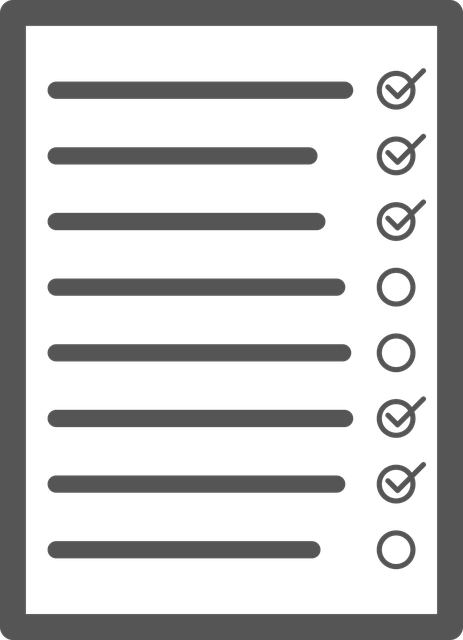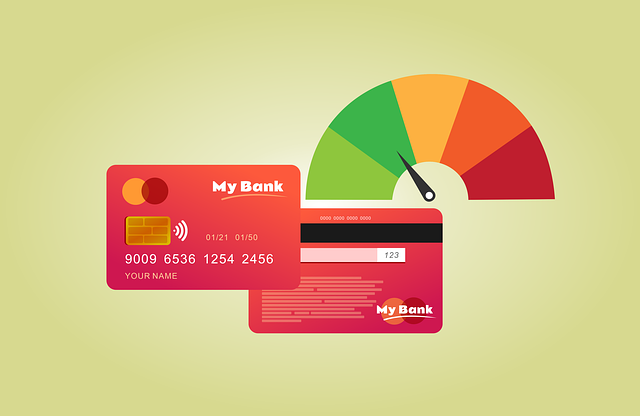
In today’s housing market, obtaining a mortgage loan is a crucial step towards homeownership. But navigating the complex world of mortgage loans can be overwhelming.
This article aims to provide a comprehensive understanding of mortgage loan terms, types, and qualifications. Additionally, it will explore the factors that influence loan approval, the importance of pre-approval, and the necessary documentation.
By following these guidelines and avoiding common pitfalls, you can ensure a smooth and successful mortgage loan application process.
Table of Contents
Understanding Mortgage Loan Terms

Understanding the various terms associated with a mortgage loan is essential for borrowers to make informed decisions.
Mortgage loans are financial arrangements provided by a financial institution to help individuals purchase a property. One important term to understand is the interest rate, which determines the cost of borrowing.
Another term is the down payment, which is the initial amount paid by the borrower towards the purchase price. Mortgage loan insurance may be required if the down payment is less than 20% of the property’s value.
The monthly payment, consisting of principal and interest, is another vital term. Borrowers have the option to select either fixed rate mortgages, where the interest rate remains consistent for the duration of the loan, or variable rate mortgages, where the interest rate fluctuates.
Familiarizing oneself with the mortgage payment schedule and the concept of a fixed interest rate is crucial for borrowers to plan their finances effectively.
Different Types of Mortgage Loans

There are several distinct categories of financing options available for individuals seeking to purchase a property. These options include:
• Fixed rate mortgage: This type of mortgage loan offers a fixed interest rate for the entire loan term, providing stability and predictable monthly payments.
• Adjustable rate mortgage: With an adjustable rate mortgage, the interest rate can fluctuate over time, usually based on market conditions. This type of loan may offer lower initial interest rates but can increase in the future.
• Mortgage lender: A mortgage lender is a financial institution or individual that provides the funds for a mortgage loan.
• Mortgage rate: The mortgage rate is the interest rate charged on the loan amount.
• Credit scores: Credit scores play a crucial role in determining the interest rates and loan terms a borrower can qualify for. Lenders consider credit scores as an indication of creditworthiness.
When considering a mortgage loan, it is essential to evaluate these factors carefully to choose the option that best suits your needs and financial situation.
Fixed-Rate Vs. Adjustable-Rate Mortgages

When comparing fixed-rate and adjustable-rate mortgages, it is important to consider the stability of the interest rate versus the potential for fluctuations based on market conditions.
A fixed-rate mortgage offers the borrower the security of a set interest rate for the duration of the loan term. This means that the monthly mortgage payment remains the same, providing predictability and ease of budgeting.
On the other hand, an adjustable-rate mortgage (ARM) has a variable interest rate that can change over time. While ARMs typically start with a lower initial interest rate, they are subject to adjustments based on market conditions and can result in higher mortgage payments.
Borrowers need to carefully analyze their financial situation, risk tolerance, and future plans before deciding between a fixed-rate or adjustable-rate mortgage.
It is important to note that in the event of borrower defaults, fixed-rate mortgages provide more stability and protection for lenders due to their fixed monthly payment structure. Additionally, fluctuations in average interest rates can impact the affordability of mortgage payments and the overall mortgage debt.
Therefore, understanding the pros and cons of each type of mortgage is crucial for borrowers to make an informed decision.
How to Qualify for a Mortgage Loan

To be eligible for a mortgage, individuals must meet certain criteria related to their creditworthiness, income, and financial stability. Meeting these requirements is crucial for securing a favorable mortgage loan.
Here are five important factors to consider:
• Creditworthiness: Credit scores are evaluated by lenders to assess the borrower’s capacity to repay the loan.A higher credit score can lead to better loan terms.
• Income: Lenders evaluate the borrower’s income to ensure they can afford the mortgage payment. Stable and verifiable income is essential.
• Financial Stability: Lenders consider the borrower’s overall financial health, including debt-to-income ratio and savings, to determine their ability to handle unforeseen expenses.
• Property Value: The property’s appraised value plays a crucial role in determining the loan amount and interest rates.
• Underwriting Process: Lenders carefully review the borrower’s financial documents and credit history during the underwriting process to assess their risk profile.
Factors That Affect Mortgage Loan Approval

Factors such as creditworthiness, income, financial stability, property value, and the underwriting process all play a crucial role in the approval of a mortgage application. When applying for a mortgage loan, lenders assess these factors to determine the borrower’s ability to make regular payments.
Credit history and score are significant indicators of a borrower’s creditworthiness, as they show the individual’s past financial responsibility.
Income is another crucial factor, as it demonstrates the borrower’s capacity to repay the loan. Lenders also consider the stability of the borrower’s income source to ensure a consistent payment schedule.
Additionally, the property’s value affects the approval process, as it serves as collateral for the loan.
The Role of Credit Scores in Mortgage Loans

A borrower’s credit score is a significant factor that lenders consider when evaluating their eligibility for a mortgage. A strong credit score demonstrates a borrower’s financial responsibility and makes them more likely to receive favorable loan terms.
Here are five key points to understand about the role of credit scores in mortgage loans:
• Credit scores are utilized by lenders to evaluate the creditworthiness of a borrower and to establish the interest rates applicable to the mortgage loan.
• Having higher credit scores usually results in lower interest rates, whereas lower credit scores may cause higher interest rates or even rejection of the loan application.
• Credit scores also impact the borrower’s ability to qualify for specific loan types, such as fixed-rate or variable-rate mortgages.
• A higher credit score may also allow borrowers to make prepayments on their mortgage loan without penalties.
• While credit scores are important, other factors such as income, employment history, and debt-to-income ratio also influence a lender’s decision.
It is crucial for borrowers to maintain a good credit score to increase their chances of obtaining a mortgage loan with favorable terms. However, it is important to note that each lender may have its own credit score requirements and restrictions apply.
Exploring Mortgage Loan Options
Exploring different options allows borrowers to find the most suitable financing solution for their housing needs. When it comes to mortgage loans, there are several options available to borrowers.
One popular option is a home equity line of credit (HELOC). This type of loan allows borrowers to access a pre-approved credit limit and withdraw funds as needed, similar to a credit card.
Another option is a lump sum home loan, where borrowers receive a fixed amount of money upfront and repay it over the entire term of the loan.
For those who prefer stability, fixed-rate mortgages are a good choice. These mortgages have a fixed interest rate for the entire term of the loan, protecting borrowers from fluctuations in the market.
It’s important for borrowers to compare different loan options, including posted rates and any limited-time offers, to ensure they choose the best option for their financial situation.
How to Calculate Your Mortgage Loan Payments
To accurately determine the amount of money you will need to pay each month towards your home financing, it is crucial to calculate your mortgage loan payments. This calculation takes into account various factors such as the loan amount, interest rates, and the loan term.
Here are some important steps to help you calculate your mortgage loan payments:
• Determine the loan amount and the interest rate offered by lenders.
• Use an online mortgage calculator or a spreadsheet program to calculate your monthly payments based on the loan amount, interest rate, and loan term.
• Consider making prepayments towards your mortgage loan to reduce the overall interest paid.
• Keep in mind that the Annual Percentage Rate (APR) represents the total cost of the loan, including interest and fees.
• The application date is important in determining the interest rate that will be applied to your loan.
Choosing the Right Mortgage Loan Term
When choosing the right term for your home financing, it is important to consider factors such as your financial goals and budget.
The mortgage loan term refers to the length of time you have to repay the loan. Lenders offer various options, typically ranging from 15 to 30 years.
Choosing the right term is crucial because it affects your monthly payment and overall interest costs. Shorter loan terms generally have higher monthly payments, but you pay less in interest over the life of the loan.
On the other hand, longer loan terms have lower monthly payments, but you end up paying more in interest.
It is essential to compare interest rates and APR from different lenders to find the best mortgage rate for your specific needs.
Mortgage Loan Refinancing Options
Refinancing options provide homeowners with an opportunity to potentially lower their monthly payments and reduce overall interest costs. By exploring mortgage loan refinancing options, borrowers can take advantage of the current market conditions to secure better terms and potentially save money in the long run.
Here are five key points to consider:
• Lower interest rates: Refinancing allows borrowers to take advantage of lower interest rates, which can result in significant savings over the life of the loan.
• Shorter loan terms: Refinancing to a shorter term can help homeowners pay off their mortgage faster and save on interest.
• Cash-out refinancing: Borrowers can access the equity in their homes by refinancing and receiving a lump sum of money, which can be used for various purposes.
• Switching loan types: Refinancing provides an opportunity to switch from an adjustable-rate mortgage to a fixed-rate mortgage or vice versa, depending on the borrower’s needs and goals.
• Consolidating debt: Homeowners can use refinancing to consolidate high-interest debts, such as credit card balances, into a single, more manageable loan with a lower interest rate.
Understanding Mortgage Loan Closing Costs
Closing costs are an important aspect to consider when refinancing a mortgage loan. These costs typically include fees for appraisal, title search, title insurance, attorney fees, and loan origination fees. Most lenders require borrowers to pay these costs upfront or roll them into the loan amount.
It is crucial to understand and calculate these costs to determine whether refinancing is financially beneficial. Refinancing can be a wise decision if it helps to lower the interest rate, reduce the loan term, or switch to a fixed-rate mortgage. By refinancing, homeowners can potentially save money in the long run by paying off their mortgage faster and avoiding higher interest rates.
It is essential to compare APR (Annual Percentage Rate) means and interest rates from different lenders before deciding to refinance a mortgage loan. Understanding closing costs can help borrowers make informed decisions about their mortgages and achieve their financial goals, whether it’s to buy real estate or save money.
The Importance of a Pre-Approval in Mortgage Loans
When it comes to obtaining a mortgage loan, one of the most crucial steps is getting pre-approved. A pre-approval is a process where a lender evaluates your financial situation and determines the amount of money they are willing to lend you. This step is essential because it not only gives you a clear understanding of your budget but also provides several other benefits.
Here are five reasons why a pre-approval is important:
• Helps you understand your financial limits and set a realistic budget.
• Gives you an advantage over other buyers, especially in competitive markets.
• Shows sellers that you are a serious buyer and increases your chances of having your offer accepted.
• Expedites the mortgage application process since much of the paperwork has already been completed.
• Helps you negotiate better terms and interest rates with lenders.
Overall, a pre-approval is a valuable tool that can save you time, money, and stress when navigating the mortgage loan process.
Mortgage Loan Documentation Requirements
One of the essential aspects of obtaining financing for a property purchase is ensuring that you have all the necessary documentation in order.
When applying for a mortgage loan, lenders require certain documents to assess your financial stability and determine your eligibility for the loan. These documents typically include proof of income, such as pay stubs or tax returns, bank statements to verify your savings and assets, employment verification, and proof of identity, such as a passport or driver’s license.
Additionally, you may be required to provide documentation related to the property, such as a purchase agreement or appraisal report.
It is crucial to gather all the required documentation before applying for a mortgage loan to streamline the approval process and increase your chances of obtaining the financing you need.
Avoiding Common Pitfalls in Mortgage Loans
To ensure a smooth and successful financing process, it is important to be aware of common pitfalls that may arise when applying for a mortgage. These pitfalls can cause delays, rejections, and additional costs. Here are five common pitfalls to avoid:
• Insufficient credit score: A low credit score can result in higher interest rates or even loan denial.
• Inaccurate or incomplete documentation: Providing incorrect or incomplete documentation can lead to delays in the approval process.
• High debt-to-income ratio: Lenders evaluate your ability to repay the loan, so having too much debt relative to your income can be a red flag.
• Inadequate savings for down payment and closing costs: Insufficient funds for down payment and closing costs can lead to loan rejection or the need for additional borrowing.
• Job changes or income fluctuations: Lenders prefer stable employment and income, so switching jobs or experiencing income fluctuations during the mortgage application process can create challenges.
Tips for a Smooth Mortgage Loan Application Process
During the mortgage loan application process, it is crucial to gather and submit all necessary documents accurately and in a timely manner. This is essential to ensure a smooth and efficient application process.
To begin, applicants should gather documents such as pay stubs, tax returns, bank statements, and employment verification letters. These documents provide lenders with a comprehensive view of the applicant’s financial situation and ability to repay the loan.
Additionally, applicants should double-check all information provided on the application form to avoid any errors or inconsistencies. It is also advisable to keep copies of all submitted documents for personal records.
Related Article: Mortgage Rate
Frequently Asked Questions
What Are the Common Pitfalls to Avoid When Applying for a Mortgage Loan?
When applying for a loan, it is important to be aware of common pitfalls to avoid. These may include insufficient credit score, inadequate documentation, excessive debt-to-income ratio, and not shopping around for the best interest rates.
What Are the Specific Documentation Requirements for a Mortgage Loan Application?
When applying for a mortgage loan, it is important to be aware of the specific documentation requirements. Lenders typically require proof of income, employment history, credit score, bank statements, tax returns, and property information.
What Are Some Tips for a Smooth Mortgage Loan Application Process?
Some tips for a smooth mortgage loan application process include getting your financial documents in order, maintaining a good credit score, choosing the right lender, and staying organized throughout the process.
How Does Pre-Approval Play a Role in the Mortgage Loan Process?
Pre-approval is a crucial step in the mortgage loan process as it enables borrowers to determine their budget, strengthens their negotiating position with sellers, and expedites the loan approval process.
What Are Some Factors That Can Affect Mortgage Loan Approval, Aside From Credit Scores?
Several factors can influence mortgage loan approval, apart from credit scores. These include the borrower’s income, employment history, debt-to-income ratio, down payment amount, property appraisal value, and the type and term of the loan being applied for.
Conclusion
In conclusion, understanding the terms and types of mortgage loans is crucial for a smooth application process. This includes being aware of the factors that affect approval.
Additionally, obtaining a pre-approval and ensuring all necessary documentation is in order is of utmost importance.
By avoiding common pitfalls and following the necessary steps, individuals can increase their chances of qualifying for a mortgage loan. This will ultimately help them achieve their homeownership goals.